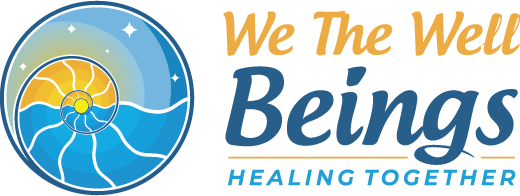Well Beings Care About
Economic Health
Aloha Kōkua
We, the well Beings, care about economic health because it’s integral to a functioning world. Moreover, with any economic disruption (like the pandemic), ripple effects of financial disorder sweep across the globe. Therefore, we must maintain a healthy economy.
The United States measures economic health by GDP (Gross Domestic Product) performance. The GDP represents the value of all goods and services produced. So, when the GDP goes up, it usually indicates that the economy is growing. But, when the GDP goes down, it suggests the economy is tightening. Thus, the accounting system of the GDP primarily measures profits. However, it does not account for any hidden costs beyond it.
Another metric used to measure economic health is the GPI (Genuine Progress Indicator). Unlike the GDP’s emphasis on profits, the GPI includes social, environmental, and human conditions. For instance, it accounts for climate change, family breakdowns, and crime. So, the GPI also focuses on such things as the clean-up costs of pollution and subtracts them from projected profits. As a result, some economists believe the GPI is a better way to measure economic health than the GDP because it provides a realistic and complete view of the nation’s well-being. Unfortunately, our focus on profits and the GDP growth rate is our most common accounting system to determine economic health.
A few years ago, we had the opportunity to visit Bhutan and learned that they follow a GNH model to measure the success of their economy. What’s GNH? It’s Gross National Happiness! Yes, you read that correctly! So, their economy is based on and measured by how happy the Bhutanese people are. What a concept!
Why Well Beings Care About Economic Health
What does this all have to do with your health? Everything! Why? Because an emphasis on profits has directly affected public health, mainly related to our food system. Studies have repeatedly shown that the growing, packaging, and distribution of cheap processed foods has ignored the multiple costs to society. And it has contributed to rampant diet-related illnesses and the widespread depletion of our lands, water, air, and ecosystems. By focusing only on profits (via the GDP) to define economic health, we overlook the actual costs of the goods and services produced. And sadly, it’s more profitable for companies to make cheap, unhealthy food (even if it harms the environment and negatively impacts your health) than to protect it. So, although you might be saving by buying cheaper food, you are likely paying a greater price in the form of poor health.
How Well Beings Care for Economic Health
The ancient people of Hawaiʻi operated under an economic system based on kōkua (helping) and reciprocity – the concept of giving and receiving (not taking). We, the well Beings, see economic health through this lens and live by these values.
Additionally, we know we have power in our purchases and vote every time we use our money. For example, with every dollar spent, we say, “I’m okay with the practices of the business that made this product!” Also, we consider the true cost of things. So, we pay attention to each product’s water, carbon, and chemical footprint to determine its actual price. For instance, did you know that eating one plant-based meal saves about 367 gallons of water, 10 square feet of a forest, 3.3 pounds of CO2 emissions, and an animal’s life?
